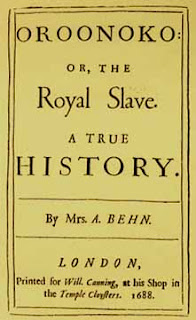It's All Fake News! (Blogpost 7)
Journalism – some people hate it and some people love it. While some people deem certain newspapers, tabloids, magazines, and newspapers to be “fake news”, some can’t wait to get their hands on a copy of the latest celebrity gossip. The same could be said for those in the 18th century. They found these news sources to be part of their daily life.
 |
| Sir Richard Steele (1672 - 1729) |
 |
| Joseph Addison (1672 - 1719) |

During this time, Joseph Addison and Sir Richard Steele were the primary proponents of The Spectator, a daily gazette that ran from March 1711 to December 1712. According to the Norton Anthology, The Spectator included writings that focused on “… good manners, daily happenings in London, going to church, shopping, investing in the stock market, the fascinations of trade and commerce, proper gender roles and relations, the personality types found in society, the town’s offerings of high and low entertainment, tastes in literature and luxury goods, [and] philosophical speculations” (NA 2640).
Considering that these topics were covered in this gazette, it is easy to understand why The Spectator would be popular amongst readers. Even the name, itself, gives hints at what was included within the gazette. According to the Norton Anthology, “[i]n The Spectator, Steele and Addison set out to break down the distinction between educating their readers and entertaining them…” (NA 2640). In my opinion, journalism has not really changed in the years since Addison and Steele. The primary reason for this is because of the readership and their fascination with the latest big news stories and gossip. We live in a society in which people are always interested in what the other is doing. Due to this, journalists know what stories will catch our attention as readers. Thus, we continue to read the sources of information.
In my own writing, there is not much of a difference between things that I write for the public versus what I write for academia. As an English major, whenever I write (even if it is a simple Facebook status update or Tweet) I make sure that there are no grammatical errors. I am, honestly, glad that Facebook has an edit option for updates because, in the past, I have found myself completely deleting a post and re-writing it because of a misspelled word, or excessive wordiness. I guess this is always going to be ingrained in me. Who knows? Only time will tell.




Comments
Post a Comment